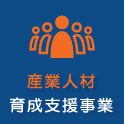
Select Page

2025/3
APOでは、経済産業省より特別拠出金を受け、産業人材育成支援事業を実施しております。
本事業で支援する企業に対する公募の詳細につきましては実施要領をご覧ください。
The Asian Productivity Organization (APO) conducts Training Program on Productivity Improvement for the Supporting Industry with the use of a special cash grant from the Ministry of Economy, Trade and Industry of Japan.
For further information, please refer to “Implementation Guidelines” below.
重要なお知らせ:助成金事業の終了
JEC事業の助成金支援は2025年末をもって終了いたします。※ JIM事業は2023年末に申請受付を終了しました。
詳細については、以下の実施要領をご参照下さい。
Important Notice: Subsidy Support Termination
Please note that the subsidy support for projects under the JEC scheme will be terminated on 31 December 2025.
(The acceptance of new applications for subsidy for projects under the JIM scheme was terminated at the end of 2023.)
For further information, please consult the following Implementation Guideline.
実施要領 / Implementation Guidelines
●ものづくり人材育成事業 / Monozukuri Project
申請書類 / Application Forms
| 様式1-1 Form 1-1 |
JPN | 産業人材育成支援事業(ものづくり人材育成事業)申込書 [Updated] |
| ENG | Application Form for Monozukuri Project [Updated] | |
| 様式2 /Form 2 | JPN/ENG | 専門家名簿 /List of Experts |
| 様式7 /Form 7 | JPN/ENG | 送金先登録書(国内・海外送金用) / Registration of Beneficiary Banks (Japan/overseas) |
提出用フォーム(事業後に提出)/ Documents and Forms to be submitted after completion of the project
| 請求書 Invoice Form |
JPN/ENG | 請求書/Invoice Form |
| 計算書 Expense Worksheet |
JPN/ENG | 計算書/Expense Worksheet [Updated] |
| 完了報告書 Project Completion Report |
JPN | 完了報告書(実施後60日以内に提出) |
| ENG | Project Completion Report (To be submitted within 60 days after completion of the project) | |
| 変更申請書 Project Change Request Form |
JPN/ENG | 変更申請書/Project Change Request Form |
参考資料 / References
The Japanese Ministry of Agriculture, Forestry and Fisheries (MAFF) manages stable food supply; develops agriculture, forestry, and fisheries; revitalizes rural areas; and manages forest and ocean resources. MAFF’s mission is to hand down food as the basis of human life and a secure environment to future generations.
Special Program for Capacity Building of Sustainable Food Value Chains for Enhanced Food Safety and Quality in Asian Countries
Demonstration Farm on Innovative Agriculture
The OECD is an intergovernmental organization established in 1961 aiming to stimulate economic progress and world trade. It now has 38 member countries that work to compare policy experiences, seek answers to common problems, identify good practices, and coordinate domestic and international policies.
The ADBI was established in 1997 in Tokyo to help build capacity, skills, and knowledge related to poverty reduction and areas that support the long-term growth and competitiveness of developing member countries. The ADBI provides inputs for policymakers in developing member countries in Asia and the Pacific through research and capacity-building and training activities.
https://www.adb.org/adbi/about
| Item | Description |
| Foundation | The KDI was founded in 1971 in recognition of the need for a think tank that researches national economic policy issues and assists the Korean government in formulating the Five-year Economic Development Plans. |
| Vision | Visionary frontier for the national agenda. |
| Mission |
The KDI’s mission is to make substantive contributions to the government and society as well as to the public and private sectors by providing timely, effective policy alternatives. It proposes policy recommendations as the core foundation of national economic growth. In addition, the KDI acts as an international policy institute that serves as a compass for economic policymakers. |
| Recent Reports | G20 Global Financial Stability Conference 2021 |
| The Impact of COVID-19 Regional Cash Subsidies on the Sales of Local Businesses in South Korea | |
| Journal | KDI Journal of Economic Policy |
| Newsletter | KDI Monthly Economic Trends |
| Address | 263 (Bangok-dong, Korea Development Institute), Namsejong-ro, Sejong-si 30149, Korea |
| URL | https://www.kdi.re.kr |
ASEAN is an economic grouping of 10 members to promote intergovernmental cooperation and facilitate economic, political, security, military, educational, and sociocultural integration among its members and other countries in Asia. It also maintains regional peace and stability based on the rule of law and principles of the UN charter.
The Regional Study on Labor Productivity in ASEAN was an initiative endorsed by the Senior Labor Officials Meeting’s Working Group on Progressive Labor Practices to Enhance the Competitiveness of ASEAN (SLOM-WG) and coordinated by the ASEAN Secretariat with the support of the Asian Productivity Organization (APO). The study achieved its objectives of presenting the current situations of labor productivity across ASEAN Member States, analyzing determinants of labor productivity growth, in particular the contribution of human capital, providing policy recommendations to sustain labor productivity growth, and exploring the feasibility of developing a regional Labor Productivity Index in the ASEAN context.
The APO and ASEAN conducted research on factors that determine labor productivity to help set policies that will sustain productivity growth in the future. The proposed Labor Productivity Index is intended to measure the contributions of individual input variables and construct a composite index of productivity-enhancing capacities within ASEAN.
The Ministry of Foreign Affairs (MOFA) of Japan is responsible for the country’s foreign policy and international relations. It provides special cash grants to the APO for project implementation to benefit member economies through productivity improvement.
Special Projects Funded by MOFA, 2020–23
The Ministry of Foreign Affairs (MOFA) of the Republic of China is responsible for promoting, expanding and conducting the nation’s foreign relations. In collaboration with the China Productivity Center (CPC), the ministry provides special grants to the APO for specific projects.
These special grants assist the APO in promoting Industry 4.0, smart machinery, smart production and smart agriculture among member economies. Experts may also be assigned to facilitate the exchange of ideas and information on smart initiatives and new developments virtually or in person.